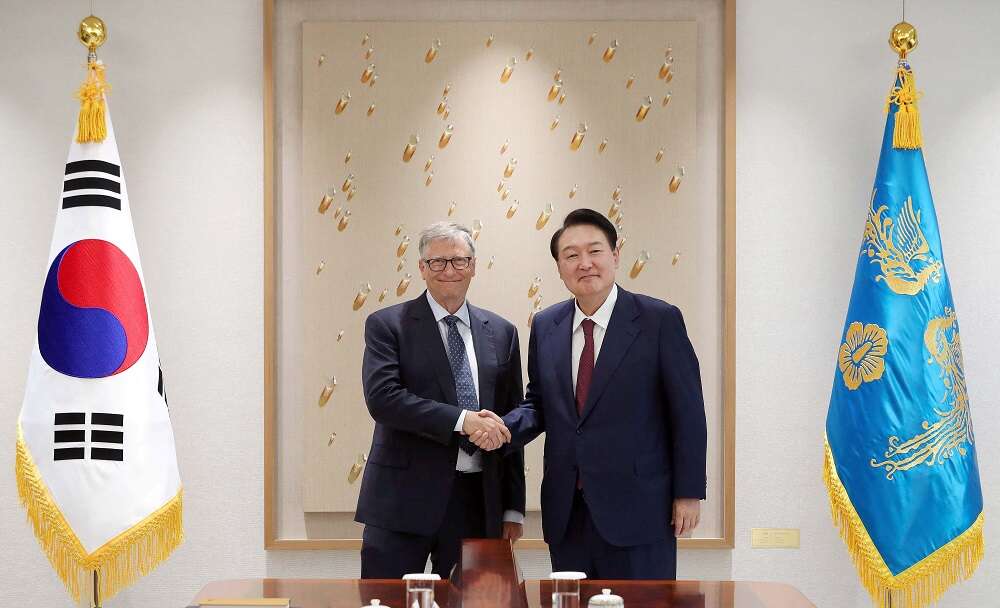
By Joori Roh and Joyce Lee
SEOUL (Reuters) – South Korea agreed on Tuesday to expand its global health partnership with the foundation set up by Microsoft Corp co-founder and philanthropist Bill Gates.
The deal came after Gates arrived in South Korea late on Monday, calling for Seoul to play a bigger role in global health and to increase aid.
The agreement includes strengthening private and public sector cooperation between the Bill & Melinda Gates Foundation and South Korea in projects such as a global health research fund, and stepping up cooperation with health organisations including CEPI, South Korea’s foreign and health ministries said in a statement.
The Coalition for Epidemic Preparedness Innovations (CEPI) works with public, private, philanthropic and civil society organisations to develop vaccines against future epidemics.
South Korea will also help to train 370 people from lower-income countries in vaccine production this year, which will be expanded to 2,000 people per year starting 2026, the ministries said.
“This is a crisis moment for global health. This is also a fantastic time for our foundation to strengthen partnership with Korea, providing great ideas for new tools and more resources to help those in need,” Gates said in a speech at the National Assembly earlier on Tuesday.
While meeting with South Korean National Assembly Speaker Kim Jin-pyo and other lawmakers, Gates called for increasing funding for groups that help improve health conditions in poor countries and prevent pandemics, and asked if South Korea would be able to scale up its international aid to 0.3% of GDP.
Gates then met President Yoon Suk-yeol, who said the South Korean government wanted a cooperative relationship with Gates’ foundation to foster high-quality bio-health technologies.
Gates also met with leaders at SK Bioscience which received $10 million in funding from CEPI to develop its COVID-19 vaccine.
(This story has been refiled to reflect the National Assembly’s official correction of figure of aid to 0.3% of GDP, not 1.3%, in paragraph 7)
(Reporting by Joori Roh and Joyce Lee, Additional reporting by Hyonhee Shin; Editing by Jacqueline Wong and Mark Potter)


